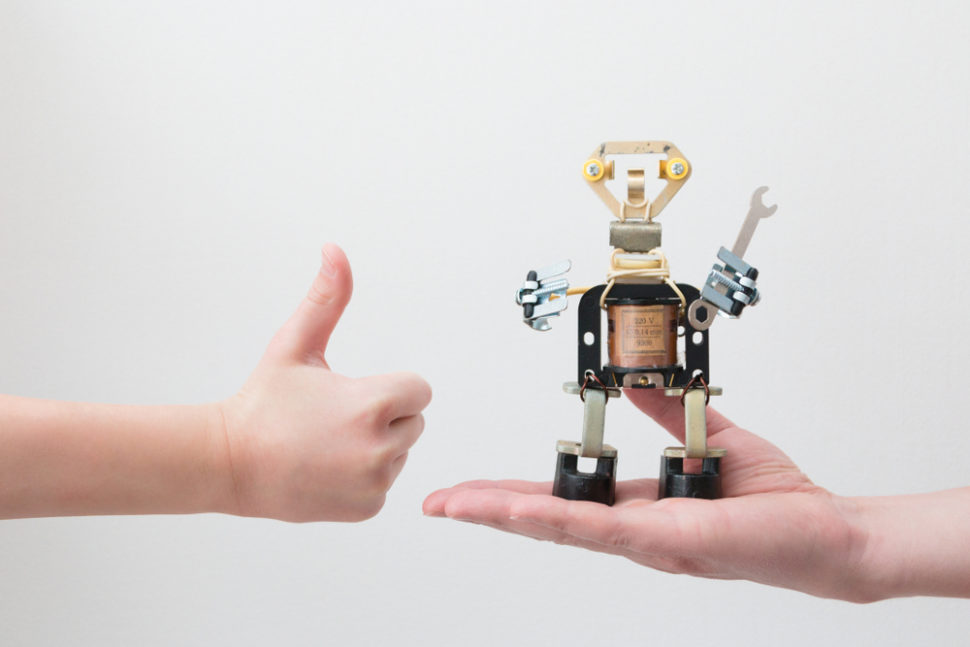Within the next few years, robots and AI will take over more than the half of workplace tasks, but they will help create nearly double the jobs they will displace.
The automation revolution is taking shape as machines and algorithms are accomplishing more and more physical and intellectual tasks, laying the groundwork for Industry 4.0.
Some jobs will be redefined and others will be completely automated, but we have to be wary of alarmist cries that point the finger at workplace automation as being a threat for human jobs.
Today, according to a recent report from the World Economic Forum (WEF), machines are responsible for 29% of workplace tasks.
That figure is only getting bigger, but there’s more economic sense to this than it first appears, and as we delve more into the report, automation sounds more of a boon than a calamity.
Automation and Jobs: the Good Largely Outweighs the Bad
First, this supposed job massacre led by robots has been wildly exaggerated, as automation will affect only about 14% of jobs.
Even with this alone, automation benefits still would outweigh its harm, but there’s more.
For every job lost to robots and algorithms, the world economy would gain about two new ones — that’s the major takeaway from WEF’s The Future of Jobs Report 2018, published on Monday.
According to the World Economic Forum projections, by 2022, machines will carry out 52% of professional tasks, up from 29% now, but automation will create nearly double the jobs they would terminate “with 133 million new jobs expected to be created by 2022 compared to 75 million that will be displaced”.
The report identifies four technologies, AI, mobile internet, big data, and the cloud, as the “drivers of change”.
But there’s a catch.
Historically, innovation has always been a driver of socioeconomic progress, often after periods of uncertainty.
People were having a similar debate to the one we’re having today about robots and AI at the onset of the Industrial Revolution in the late of the 18th century.
However, regarding the swift paradigm shift set in motion by automation and its social implications, preparation is key.
Read More: Night Shift Negatively Impacts Health. How Could Automation Help?
As the WEF report puts it, “if managed wisely, [the shift to automation] could lead to a new age of good work, good jobs and improved quality of life for all, but if managed poorly, pose the risk of widening skills gaps, greater inequality and broader polarization”.
The WEF, which surveyed human resources managers and strategy executives at companies across 12 industrial sectors from 20 developed and developing economies, found that 54% of the workforce would need “significant re- and up-skilling” so that they’re not left behind.
“To prevent an undesirable lose-lose scenario — technological change accompanied by talent shortages, mass unemployment and growing inequality — it is critical that businesses take an active role in supporting their existing workforces through reskilling and upskilling, that individuals take a proactive approach to their own lifelong learning and that governments create an enabling environment, rapidly and creatively, to assist in these efforts”.

















According to Geoffrey West and his book Scale, The Universal Laws of Life and Death in Organisms, Cities and Companies, economies grow super exponentially, regress and finally collapse. To prevent this new innovations have to take place ever more often and faster. So finally in a full employment people will pray that automation would take care of this accelerating rat race or that other theories as economies in balance without growth etc. make sense.